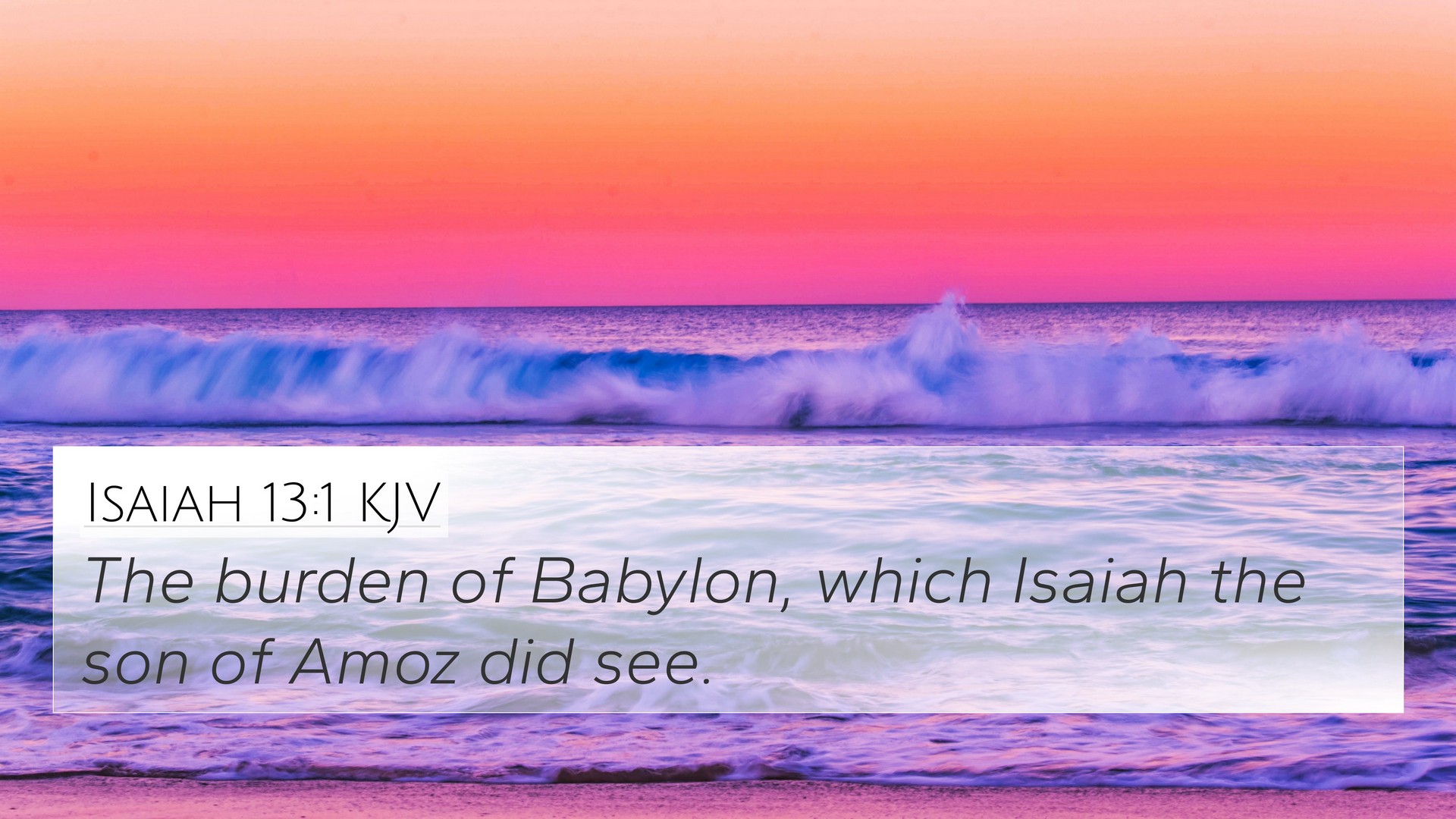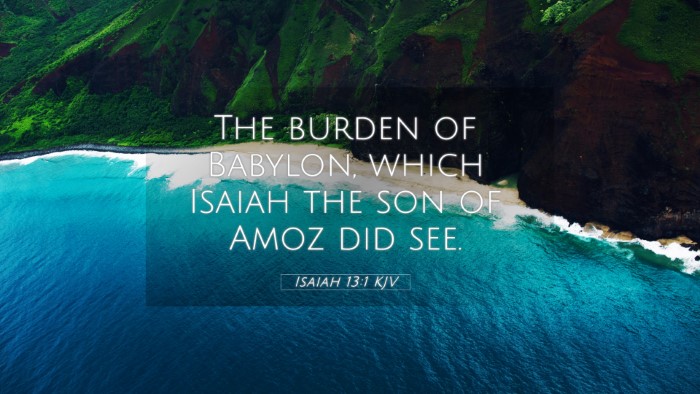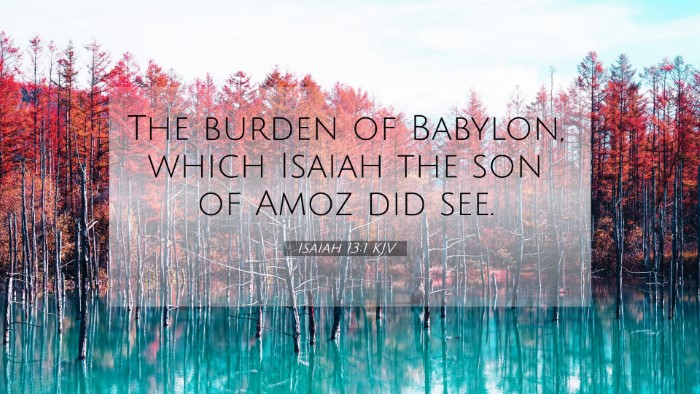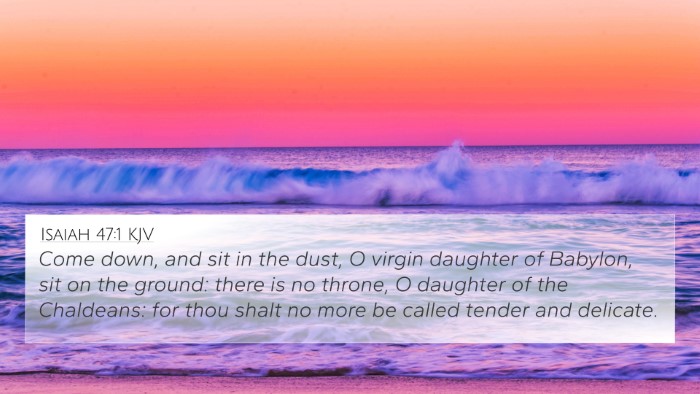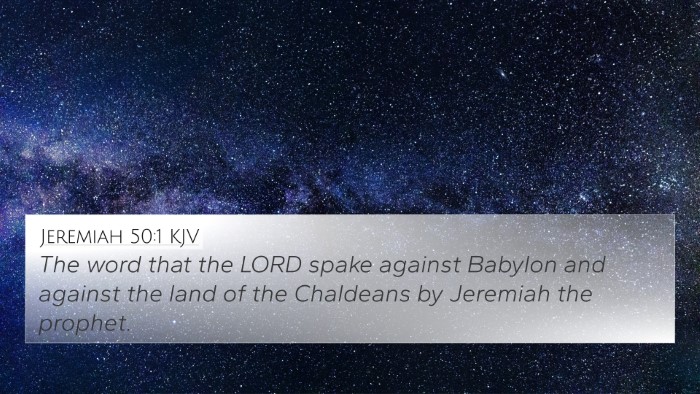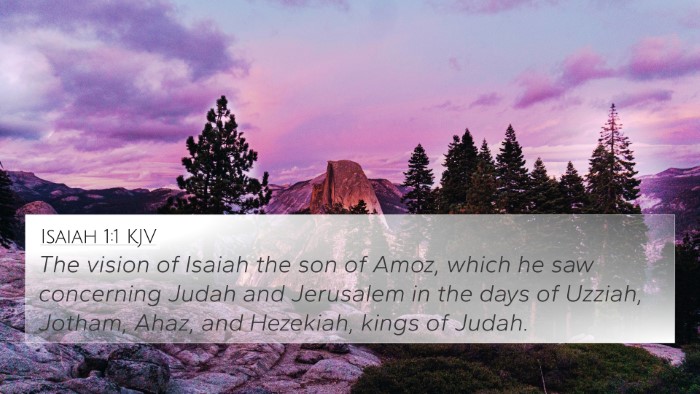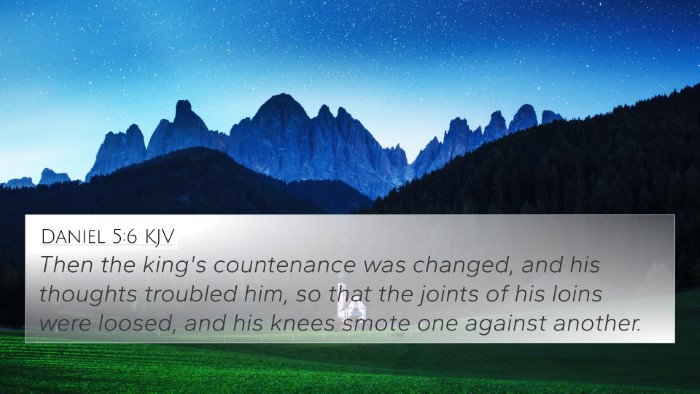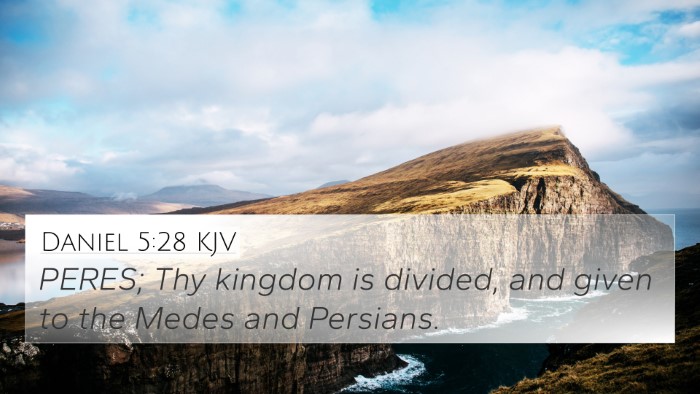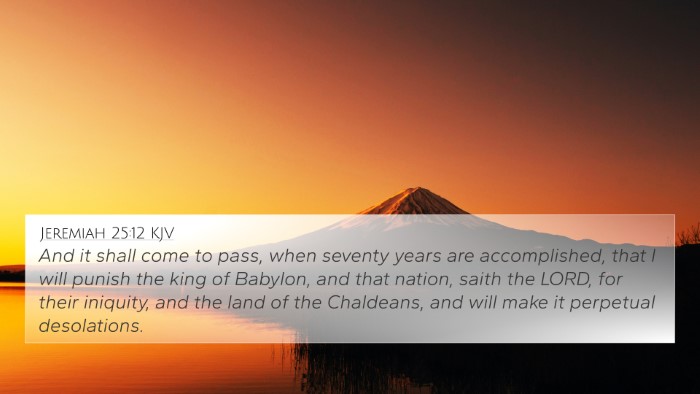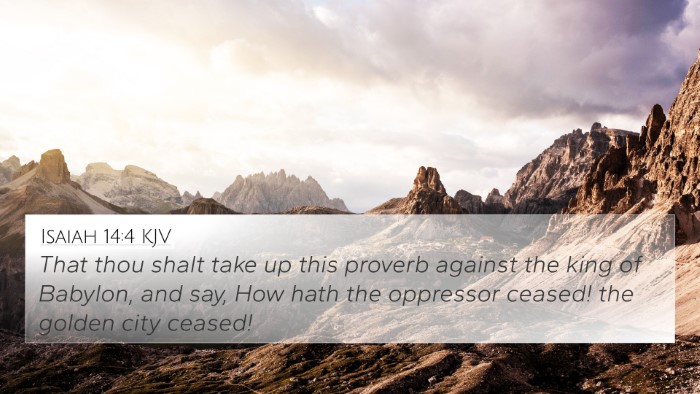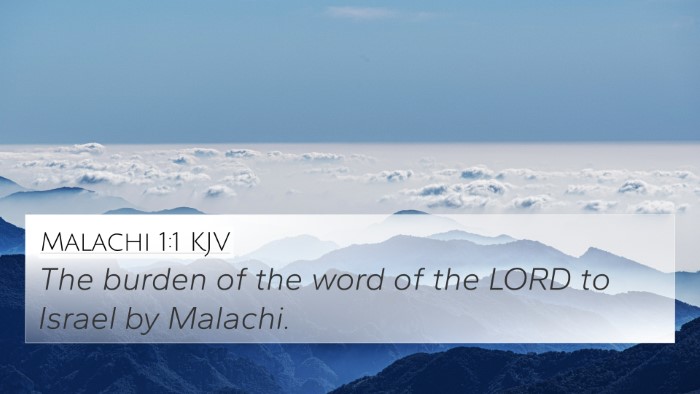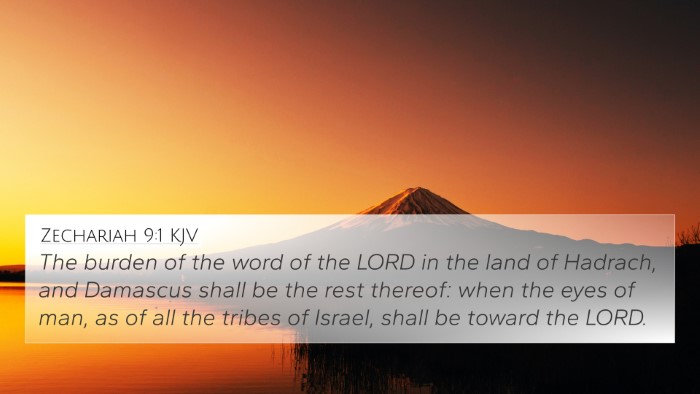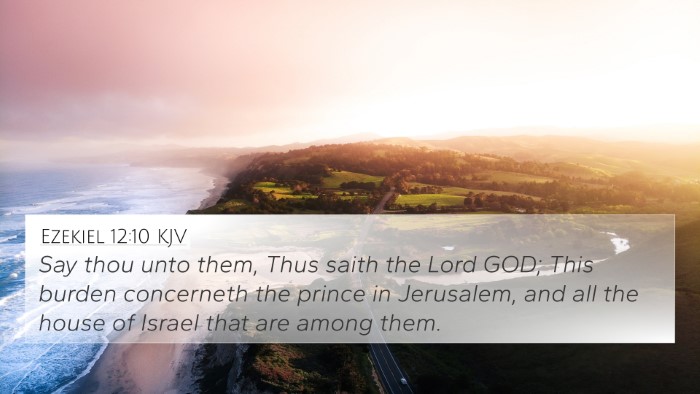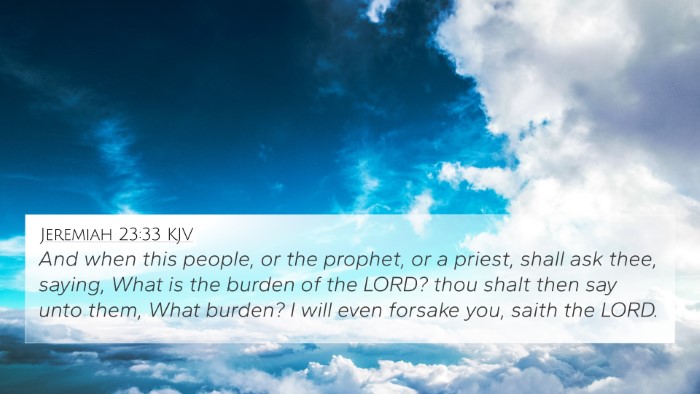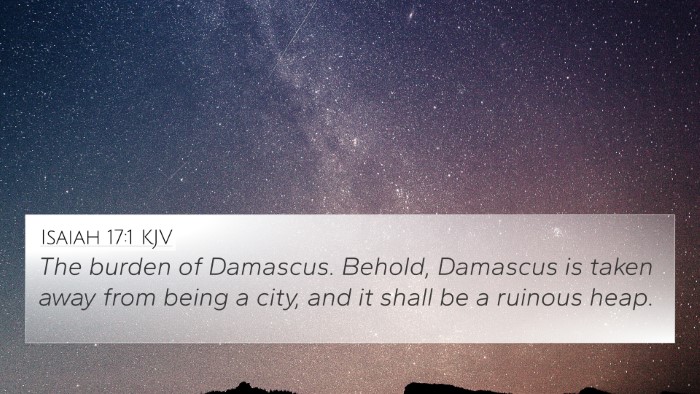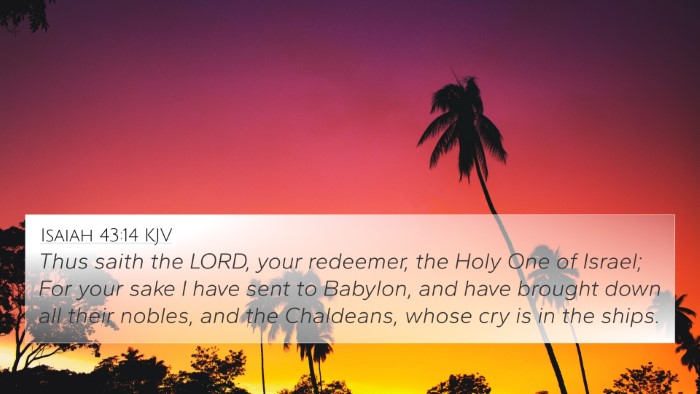Understanding Isaiah 13:1
Isaiah 13:1 states: "The burden of Babylon, which Isaiah the son of Amoz did see." This verse serves as an introduction to one of Isaiah's significant prophecies regarding the judgment upon Babylon.
Context and Setting
Isaiah prophesied during a time when the nation of Israel was facing great turmoil and degradation. The prominence of Babylon was growing, and its eventual conquest of Israel and destruction of Jerusalem was imminent. Isaiah's message here is defined not only by the impending judgment on Babylon but also by the larger theme of judgment and redemption that runs throughout the book.
Interpretations and Insights
According to Matthew Henry, this passage highlights the prophetic burden or oracle against Babylon, emphasizing God’s sovereignty over nations and the ultimate purpose of divine judgment as a means for the eventual restoration of His people.
Albert Barnes notes that the term "burden" indicates a heavy message, suggesting both the weight of the prophecy and the serious consequences Babylon would face. Babylon symbolizes pride and moral corruption that were not just personal failings but national attributes leading to divine punishment.
Adam Clarke emphasizes that the "son of Amoz" denotes Isaiah's lineage, grounding his authority in God's calling. The prophecy not only foretells Babylon's fall but also serves as a message for all nations reflective of their moral standing before the Almighty.
Thematic Connections in Scripture
This verse can be analyzed within a broader context, linking to various other Scriptures discussing themes of judgment and redemption:
- Jeremiah 50:1-2: Prophecy against Babylon, mirroring Isaiah's message.
- Revelation 14:8: Describes the fall of Babylon, illustrating the fulfillment of Isaiah's prophecy.
- Micah 4:10: Captivity and restoration of Zion, common with Isaiah's theme of hope after judgment.
- Isaiah 47:1-3: Direct condemnation of Babylon's arrogance.
- 2 Peter 2:6: Example of God's judgment on sinful nations.
- Romans 1:18-32: Describes God's wrath against ungodliness, similar to the tone in Isaiah's message.
- Zechariah 5:5-11: The vision of a flying scroll, a symbol of God's judgment against wickedness.
The Importance of Cross-Referencing
This verse, along with its connections to other scriptures, exemplifies the importance of cross-referencing in Bible study. The analysis of thematic links enhances an understanding of God's overarching narrative throughout Scripture.
Tools for Bible Cross-Referencing
Utilizing tools such as a Bible concordance or a cross-reference Bible study guide can facilitate deeper comprehension of how different passages relate, especially when exploring significant texts like Isaiah 13:1. Such resources allow believers to:
- Identify connections between Old and New Testament figures.
- Engage in detailed cross-reference studies between Gospels.
- Explore Bible verses that relate to each specific theme or teaching.
Conclusion: The Burden of Prophecy
In Isaiah 13:1, we see not only a specific prophecy regarding Babylon but also an invitation to contemplate the broader implications of judgment. The weight of this burden underscores a critical truth: God is sovereign over nations, and His plans extend beyond the immediate context, leading to future hope and restoration for His people.
By understanding this verse through various biblical connections and detailed analysis, readers can appreciate the richness of God’s revelation and the importance of scripture in reflecting divine truth and sovereignty.
